For screening inquiries, commissions, collaborations, lecturing and mentorship, or any other inquiries, please get in touch ︎
- Follow on ︎ Instagram for news and events
- Watch on ︎ Vimeo and ︎ YouTube
- Listen on ︎music or ︎bandcamp or ︎spotify
Scott Barley is an artist-filmmaker based in Scotland. His filmography focuses on creating sensorial and contemplative experiences that challenge traditional anthropocentric narrative structures. Recurrent themes in his work include nature, darkness, visible absence, cosmology, phenomenology, and mysticism.
For over a decade, Scott has embraced a radically independent approach to filmmaking, transitioning from ARRI cameras and traditional crew structures to a solo, environmentally sustainable practice primarily filming on iPhone, combined with his paintings and drawings, and personally handling all aspects of production, from direction and cinematography to sound design, post-production, and distribution.
Barley’s first feature film, Sleep Has Her House (2017), received the Jury Award for Best Film at the Fronteira International Documentary & Experimental Film Festival, Brazil. Film historian Dr. Nicole Brenez, researcher and editor for Jean-Luc Godard’s The Image Book (Special Palme d’Or, Cannes 2018), cited Sleep Has Her House as one of the ten best films of the decade, noting that Barley “renews our conception of visuality” and describing him as “one of the most gifted visual poets of his generation.” The film was later included in the decennial Sight and Sound poll of The Greatest Films of All Time (2022), receiving votes in both the Critics’ and Directors’ polls. Danish film critic and former director of the European Documentary Network, Tue Steen Müller has described him as the “Anselm Kiefer of cinema.”
His work has been exhibited throughout Europe, The Americas, Asia, and Australia. Notable venues include ICA London, Jeu de Paume Paris, Doclisboa, Karlovy Vary IFF, Venice Biennale, QAGOMA, MoMA Río de Janeiro, Korean Film Archive, and MoCA Busan. His work has been broadcast on ARTE and Canal180, and written about in Sight and Sound, MUBI Notebook, Film Comment, Frieze, Screen, and Sabzian. His filmography has been the subject of academic analysis at conferences, including the University of Melbourne (with Prof Sean Cubitt), Goldsmiths University of London (Dr Wood Roberdeau), Université Sorbonne Nouvelle Paris (Dr Nicole Brenez), University of Malta (Dr Joe Kickasola), and the University of Porto (Dr Nadin Mai).
His most recent short film, A Ladder (2025), is a collaboration with musician Hara Alonso, commissioned by Canal180, Culturgest, and Gnration, Portugal. Following its television broadcast debut in March 2025, the film premiered in cinemas in May 2025 as part of a David Lynch in memoriam retrospective in Freiburg, Germany, screened alongside Lynch’s seminal work, Eraserhead.
Barley has worked as a cinematographer, multimedia artist, and in post-production on projects including Tadhg O'Sullivan's To the Moon (2020) and Saeed Taji Farouky's Standing At The Ruins (Final Cut in Venice, 82nd Venice International Film Festival). He served as a production consultant on Silent Friend by Academy Award nominee Ildikó Enyedi (FIPRESCI Prize, 82nd Venice International Film Festival), and as colourist and visual artist for Kier-La Janisse's The Occupant of the Room, which premiered at Sitges Film Festival 2025.
Outside of filmmaking, Barley has released multiple works of drone music, a parallel practice that continues his explorations of texture, resonance, and atmosphere through sound. His music has been performed and re-interpreted at venues in Europe and The Americas, including the Museum of Contemporary Art MAR, Argentina and the Museum of Musical Instruments Leipzig, Germany. His score from Sleep Has Her House was featured by the musician Ethel Cain as part of her BBC 6 Music Artist in Residence in 2025.
Barley is the co-founder of Obscuritads, an international collective dedicated to “rendering the invisible visible”—with filmmaker Mikel Guillen (Toronto) and curator and programmer Miquel Escudero Diéguez (Barcelona). American filmmaker Phil Solomon (1954–2019) is an honorary member.
Scott teaches Film at Edinburgh College of Art, University of Edinburgh and Falmouth University. He also provides mentorship and consultation for filmmakers and artists internationally at various stages of career development. He has served as a mentor for Film London's FLAMIN Fellowship programme and L'Alternativa Professionals at the Centre of Contemporary Culture Barcelona, advising emerging filmmakers through all stages of film development. He has delivered workshops and masterclasses at international arts organisations, film festivals and universities, including Stavanger Art Museum Norway, Centre of Contemporary Culture Barcelona, Lago Film Fest Italy, Academy of Media Arts Cologne, Academic Film Centre Belgrade, University of Montreal, and National Institute of Technology Durgapur.
His second feature film, The Sea Behind Her Head, funded by the British Film Institute (BFI) and Doc Society, is currently in production, alongside several new short films and multimedia works funded by Creative Scotland.
For screening inquiries, commissions, collaborations, lecturing and mentorship,
or any other inquiries, please get in touch ︎
© Scott Barley 2025. Sole copyright holder of all work featured herein (2010—present). All rights reserved.
or any other inquiries, please get in touch ︎
- Follow on ︎ Instagram for news and events
- Watch on ︎ Vimeo and ︎ YouTube
- Listen on ︎music or ︎bandcamp or ︎spotify
- Obscuritads
︎ ︎ ︎ ︎ ︎ ︎ ︎
© Scott Barley 2025. Sole copyright holder of all work featured herein (2010—present). All rights reserved.
Supported by
![]()
![]()

